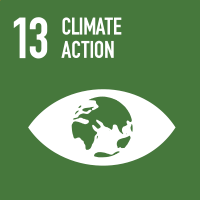Studying at the University of Verona
Here you can find information on the organisational aspects of the Programme, lecture timetables, learning activities and useful contact details for your time at the University, from enrolment to graduation.
Study Plan
This information is intended exclusively for students already enrolled in this course.If you are a new student interested in enrolling, you can find information about the course of study on the course page:
Laurea magistrale in Biotecnologie per le biorisorse e lo sviluppo ecosostenibile - Enrollment from 2025/2026The Study Plan includes all modules, teaching and learning activities that each student will need to undertake during their time at the University.
Please select your Study Plan based on your enrollment year.
1° Year
| Modules | Credits | TAF | SSD |
|---|
1 module among the following1 module among the following1 module between the following1 module among the following1 module between the following2° Year It will be activated in the A.Y. 2025/2026
| Modules | Credits | TAF | SSD |
|---|
1 module between the following1 module between the following1 module among the following| Modules | Credits | TAF | SSD |
|---|
1 module among the following1 module among the following1 module between the following1 module among the following1 module between the following| Modules | Credits | TAF | SSD |
|---|
1 module between the following1 module between the following1 module among the following| Modules | Credits | TAF | SSD |
|---|
1 module among the followingLegend | Type of training activity (TTA)
TAF (Type of Educational Activity) All courses and activities are classified into different types of educational activities, indicated by a letter.
Genetics and biotechnology of no-food crops (2024/2025)
Teaching code
4S008296
Teacher
Coordinator
Credits
6
Language
Italian
Scientific Disciplinary Sector (SSD)
AGR/07 - AGRICULTURAL GENETICS
Period
Semester 1 dal Oct 1, 2024 al Jan 31, 2025.
Courses Single
Authorized with reserve
Learning objectives
Objective of the course is to provide to students the main knowledge concerning no-food crops for industrial production. A significant part of the course will concern breeding, highlighting both traditional and genetic engineering techniques and main goals associated to each no-food culture. In a following moment, the main industrial crops (e.g. cultures for production of oil, sugars, industrial compounds, etc.) will be considered, shedding light on their genetics and adaptability. The course will help students to acquire the required knowledge to develop no-food plant resources, considering the totality of the plant's potential.
Prerequisites and basic notions
Any preliminary notions will be explained by the teacher
Program
1. Introduction
1.1. Reference to the meaning of circular economy and sustainable agriculture;
1.2. Differentiation between food and non-food agriculture; importance of non-food agriculture for sustainability.
1.3. Issues related to the development of non-food crops.
2. Plant breeding
2.1. Definition of plant breeding and General and specific targets of plant breeding;
2.2. Methodologies applied to plant species: conventional approach, crossbreeding and selection; the role of in vitro cultures and mutagenesis: mutation breeding. Molecular markers and their application in plant breeding. The study of natural populations - mapping by association and the concept of linkage disequilibrium - (GWAS) application to industrial plant species.
2.3. Biotechnology and plant breeding - consolidated methods (physico-chemical methods; biolistic method; transformation mediated by Rhizobium radiobacter) and new methods (genome editing and molecular breeding).
3. Non-food crops
For each category, examples of species of economic interest, information on plant genetics, variety availability, the main aspects of genetic improvement and the progress of traditional and biotechnological breeding will be considered.
3.1. Energy crops and biofuels (biofuels and bioenergy crops) - oil crops and sugar crops
3.2. Fiber crops (fiber crops)
3.3. Biomass coppices (short rotation forestry)
3.4. Plants as bioreactors: production of molecules and proteins of pharmaceutical and industrial interests.
Didactic methods
a) The topics will be delivered through lectures;
b) students will be offered recent thematic insights, available in literature;
c) Lessons will be delivered exclusively in presence, without any recourse to online teaching methods.
Learning assessment procedures
The exam will be written (2h). The student will be given five questions that focus on the topics covered. Full freedom is left in the structuring of the answer, in the choice of examples to be reported and in the connections between different topics. Exam methods are not differentiated between attending and non-attending students
Evaluation criteria
- completeness of contents,
- competence in the use of specialized vocabulary,
- student's ability to correlate and integrate the various topics studied.
Criteria for the composition of the final grade
Maximum score, 30/30 cum laude
Exam language
Italiano o Inglese, a scelta dello studente



